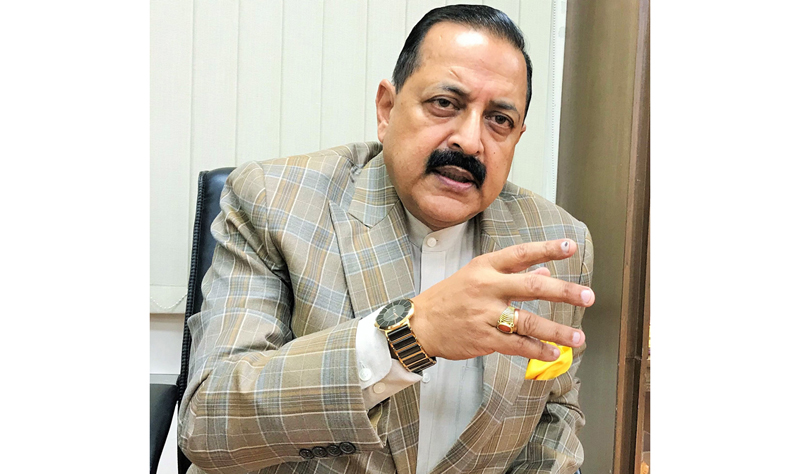Excelsior Correspondent
NEW DELHI, Nov 17: Union Minister of State (Independent Charge) Development of North Eastern Region (DoNER), MoS PMO, Personnel, Public Grievances, Pensions, Atomic Energy and Space, Dr Jitendra Singh said here today that the Prevention of Corruption Act, as applicable in the rest of India, has now also become applicable in the two new Union Territories of Jammu & Kashmir and Ladakh, and this will thus remove one of the major underlying factors responsible for rampant corruption in the erstwhile State of J&K.
Speaking to media on the eve of the winter session of Parliament beginning tomorrow, Dr Jitendra Singh said that all Parliamentary Acts hereafter are automatically applicable to the Union Territories of Jammu & Kashmir and Ladakh, and that it will not require to be endorsed by the UT Governments or the Assembly.
With the abrogation of Article 370, said Dr Jitendra Singh, as many as 106 Central Laws have automatically become applicable in UTs of J&K and Ladakh. Some of these include key Central Legislations like Prevention of Corruption Act, National Commission for Minority, Land Acquisition Act, Child Marriage Act, Dowry Act, Triple Talaq Legislation, 73 and 74 Amendments of Panchayati Raj, Right to Education, Reservation for Scheduled Tribes, Citizenship Act etc. Most of these Central Legislations were made for the welfare of citizens, but these were not implemented by the rulers-that-be because of their personal motive or interest, he said.
DoPT had in 2018 brought in an Amendment to the Prevention of Corruption Act of 1988, with certain modifications including the provision to prosecute the bribe- giver also along with the bribe-taker. However, this Act was not adopted by the then State Government of J&K because it did not suit them and they used the alibi of Article 370 to refuse its implementation.
Article 370 having been abrogated, Dr Jitendra Singh said, this is in fact a procedural simplification as well, because even for such Parliamentary Acts or Laws which were otherwise acceptable to the then State Government or Assembly of Jammu & Kashmir, one would have to wait either for the Assembly session to be convened or Governor’s ordinance to be introduced at the recommendations of the State Cabinet. This also often left enough room for manipulations and “pick and choose” approach depending upon the political priorities or convenience of the State Government in place, he added.
The winter session of Parliament beginning tomorrow, said Dr Jitendra Singh, will mark a new historic beginning, also because the discussion and deliberation followed by the enactment of legislation, will have an equal and direct bearing on the citizens of Jammu & Kashmir and Ladakh like their counterparts in rest of India.
Trending Now
E-Paper


